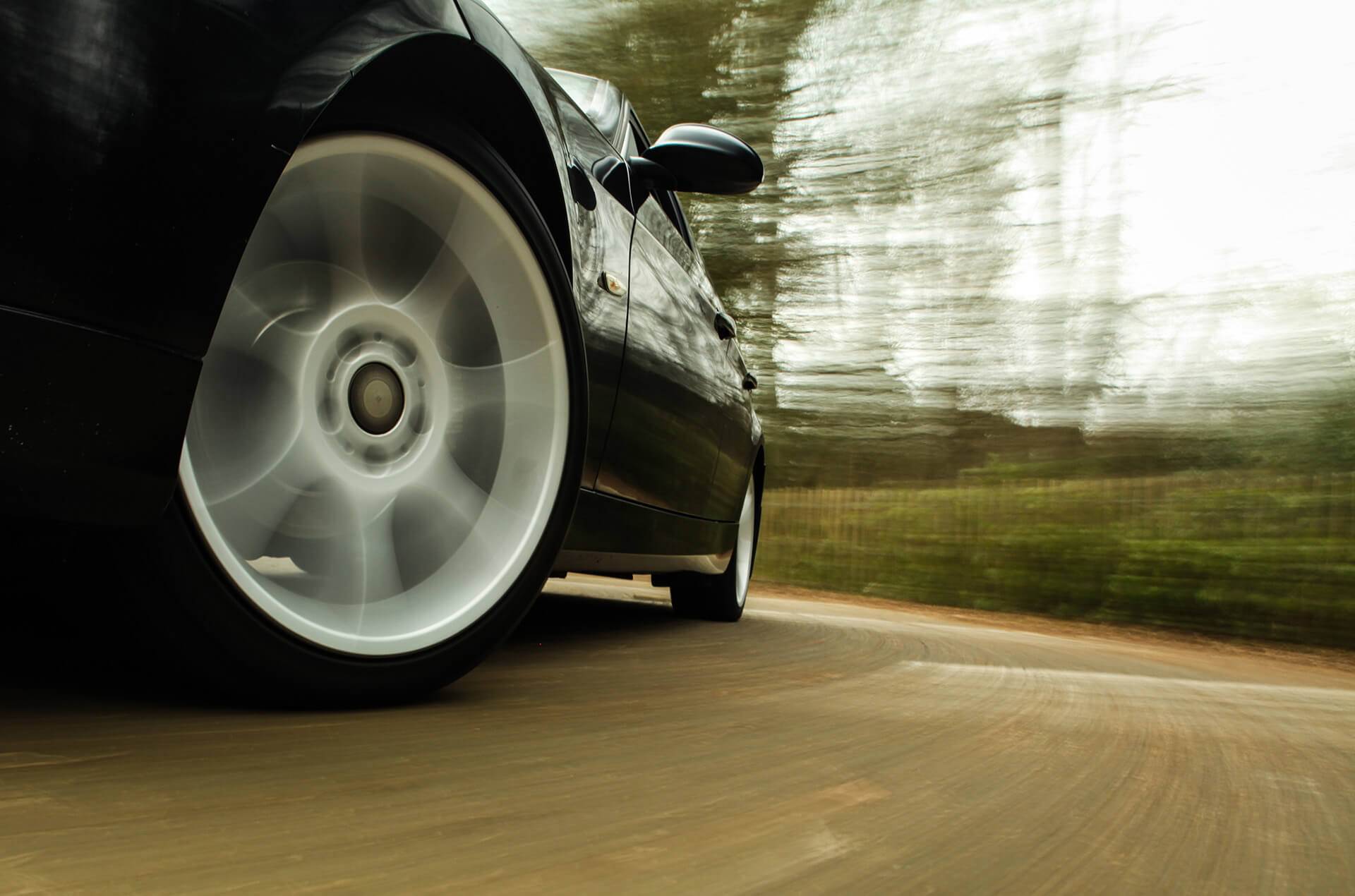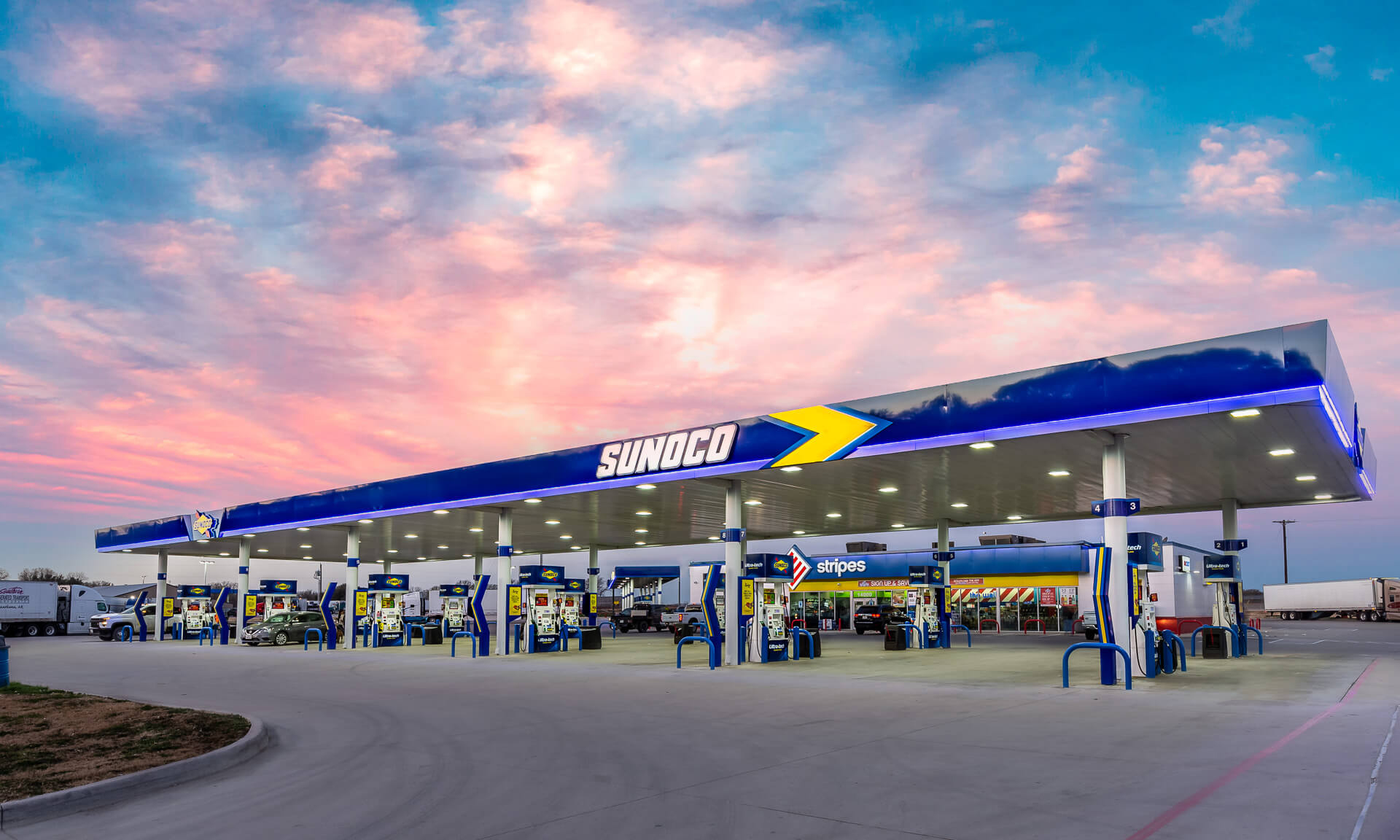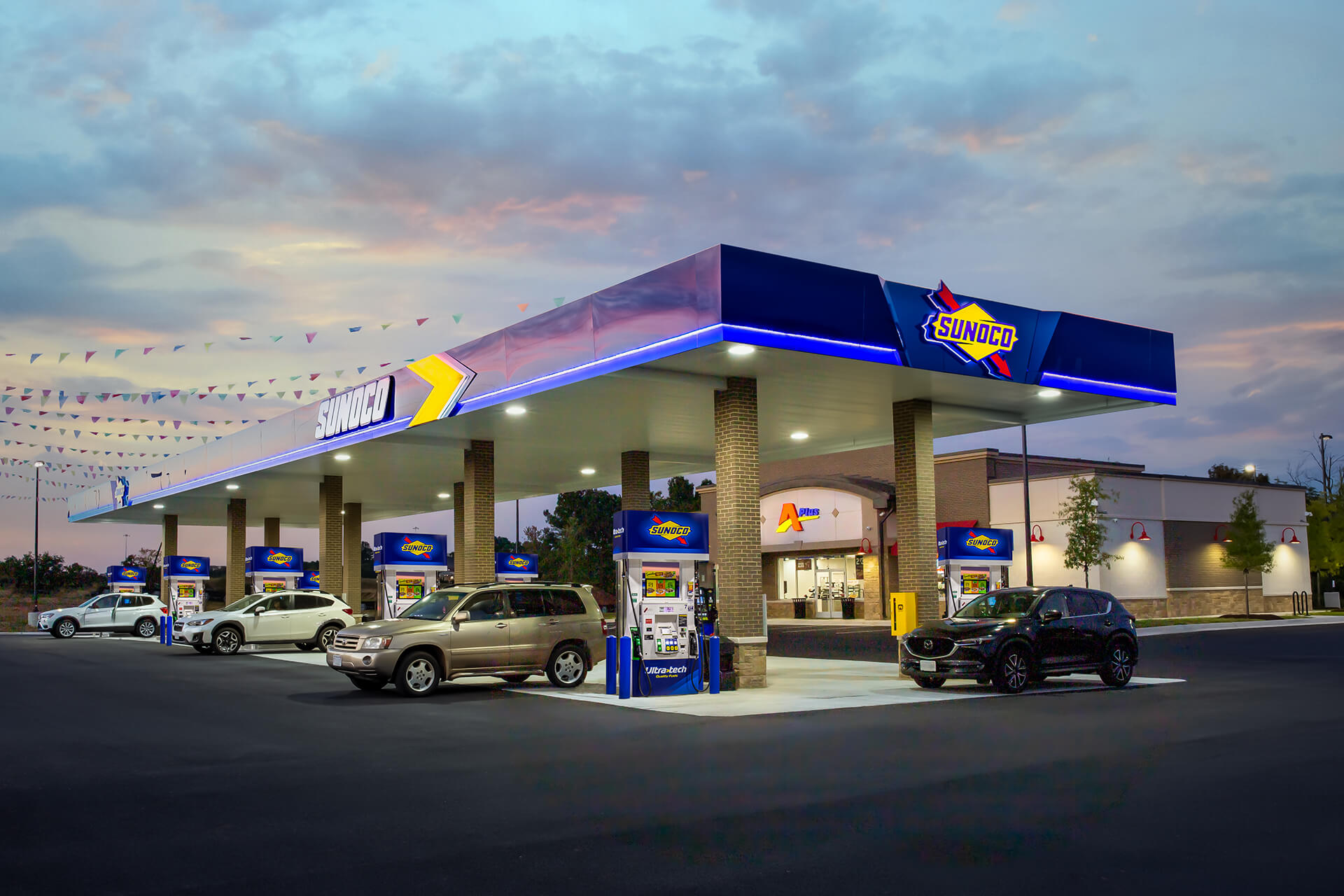Passion Meets Performance
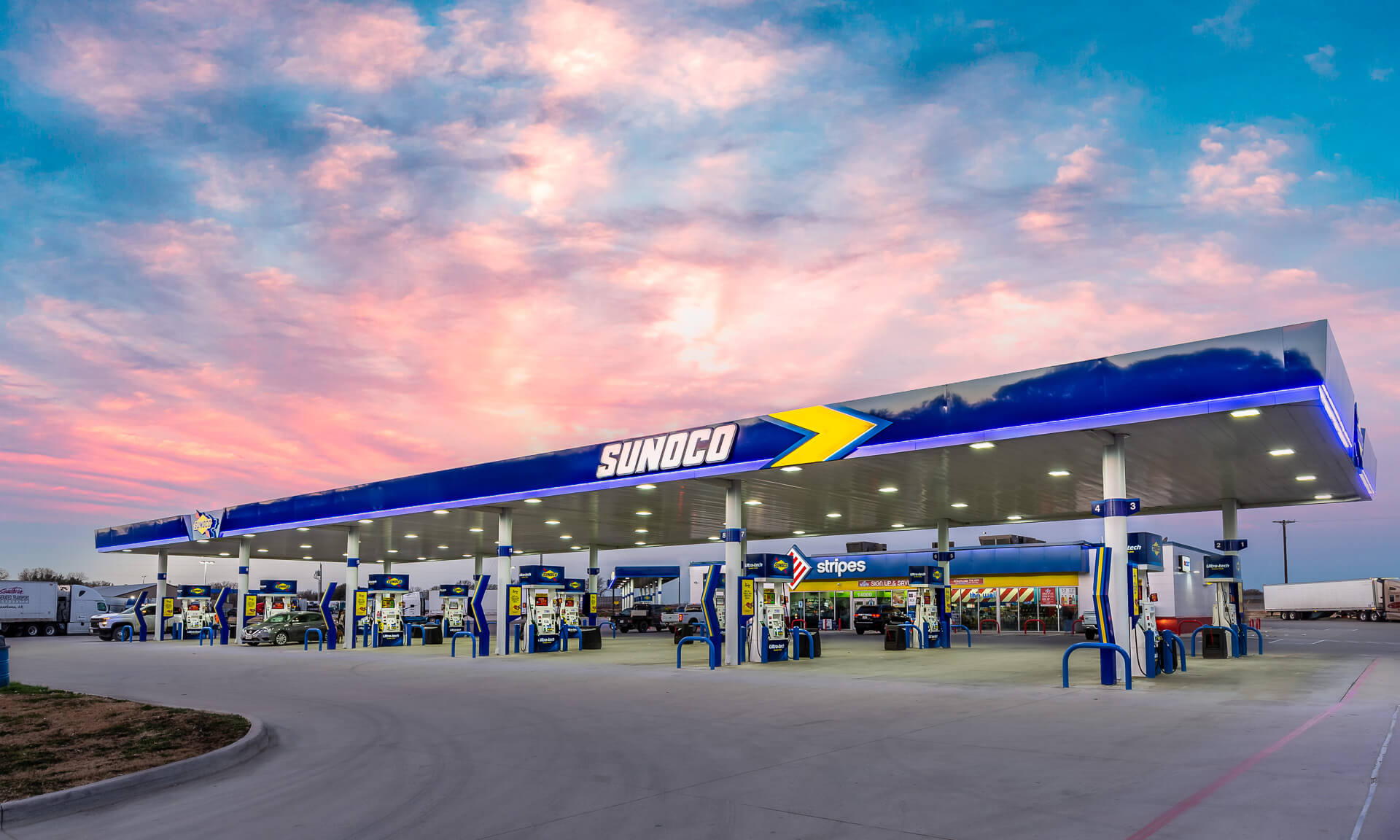
Jay Thomas' Secrets to High-Performance Engines
- Gear Patrol Studios
- 15-Nov-22
- View source article
Millions of performance car fanatics follow Jay Thomas on social media – @337Speed on YouTube, TikTok and elsewhere – for his high-energy, intensely knowledgable and entertaining explainer videos. Folks in Lafayettte, Louisiana, can catch Thomas dishing his expertise in person at Mad Hatter Garage. Thomas' videos are straightforward, full of personality and hugely serviceable with, as he accurately points out, "no fluff."
We talked to Thomas about his best advice for optimizing and maintaining a car's performance over time, and he offered tips for potential buyers and spirited driver-owners alike. Thomas also explained why high-quality fuels like Sunoco Ultratech can help preserve your car's engine.
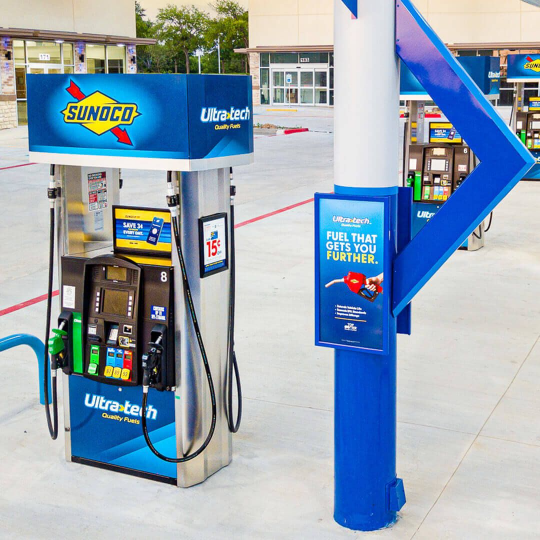
Sunoco Ultratech fuels are available at every Sunoco station and span every octane grade. Ultratech is Top Tier approved and meets or exceeds EPA requirements. Most importantly, Ultratech "includes the same detergent levels as the fuel Sunoco makes for NASCAR." These strategically formulated detergents counteract the damaging effects of heat on fuel – and, subsequently, in your engine's cylinders and intake system – by cleaning out performance-diminishing carbon deposits, thereby keeping performance tip-top and prolonging precious longevity.
Check out Jay Thomas' top tips for maintaining a performance car below – take them to heart and find him online for plenty more.
1: Always Run Oil Separators or Catch Cans on Performance Engines
Oil separators, also called catch tanks or catch cans, are devices that install in a fuel-injected engine upstream of its intake track. These intercept oil before it can sneak in and form deposits that cause diminished performance.
"What happens in high-performance, direct-injected engines is under [turbocharger] boost and during spirited driving, the oil recirculates out of the crankcase back into the intake [where] it sticks to everything… the intake manifold, the back of the valves.
"Over time, you'll have clogged valves, and the intake can get clogged. So I always recommend first thing, if you plan on doing spirited driving, buy a catch can system or some form of oil separator for the intake manifold to prolong the performance of that vehicle."
2: Check Fluids More Frequently Than 'Maintenance Schedules' Suggest
Manufacturers provide recommended maintenance schedules that often abide by the '30-60-90 rule,' which suggests inspecting and replacing oil, brake fluid and coolant at specific mileage intervals (30K, 60K and 90K).
"A lot of fuels over time can contaminate the oil. That fuel will start to blow past the rings and will go into the crankcase, and change the viscosity and the lubricity of the oil itself.
"So it's always wise to check fluids before the [recommended] intervals – your coolant, your oil, transmission fluid levels. If you smell fuel in the oil, or the transmission fluid is starting to change color... you can catch problems early and remedy them before they really spiral out of control. Which is going to cost much more than doing the proper oil change early."
3: High-Quality Fuel Optimizes and Extends Life In Modern Performance Engine
It's not a marketing gimmick: high-performance engines really do run better on higher-quality fuel like Sunoco Ultratech. They may run most efficiently or even produce more power with good gas.
"Fuel is just as important as the type of oil you run, the type of coolant you run, the type of transmission fluid you run. A lot of times, we use fuel as a second thought, we just throw it in our vehicle and then we go about our day. Especially with a performance vehicle, it's very important to use a quality fuel. You're going to have better performance, you're going to have longevity.
"Most modern engines can sense when you put [low-octane] fuel in. They're going to pull timing and pull power. If you look at a new Mustang GT, there's two different power ratings. There's a rating for 87 octane and there's a rating for 91 and 93 octane. You add more power by using a higher quality fuel because that's what these new ECUs (engine control units) and powertrain management systems are going to be looking at.
"The next thing is long-term maintenance of fuel parts. [On old cars,] carburetors were pretty simple. They only ran maybe five to 10 pounds of pressure in the fuel. With modern direct injection systems, the rail pressure can be as high as 5000 PSI. So essentially, the fuel needs to be very, very clean because if you knock out a high-performance fuel system, that can be thousands of dollars. Additives in there are going to protect those direct injectors, that low-side fuel pump, that high-side fuel pump, the rails and the tips of the direct injectors as well."
4: Let the Vehicle Warm Up Before Spirited Driving
Engines get hot – usually over 200° – and won't operate at peak performance until fully warm. For best results, let a performance engine idle for at least one minute after startup, and don't drive it hard until it's up to operating temp.
"We're blessed with these modern vehicles where you can just turn on and go anywhere you want. But performance vehicles have very tight bearing tolerances. If the oil is cold and it's not flowing properly, it doesn't flow and reach the proper areas [of the engine] and you could easily spin a bearing.
"The mid-2000s BMW M 5s and some of the later M3s had bearing issues that stemmed from people revving engines up while they were still cold. These are almost race engines and have maybe one or two thousandths [of an inch] in bearing tolerance.
"So that's why I always say, 'Hey, if you got a performance engine, lay off the throttle until it warms up properly. Look at your oil and your cooling, get them up to operating temperature before you start to rev it out and have some spirited fun with it. That's always the best plan for long-term reliability."
5: The Best Preventative Maintenance Is an Initial Inspection When You Purchase
Any time you're test-driving a used car, call ahead and book an appointment with a knowledgeable mechanic. A thorough, unbiased opinion will give you an idea of what might need to be repaired – and how soon.
"Especially if you're looking to buy a performance car, you can find issues that might snowball [and then decide to] get a better vehicle. Maybe you are paying more initially, but that $3,000 you pay for a better vehicle may save you $10,000 down the road when it needs a full engine replacement.
"For example, if you're looking to buy a BMW M3 or M5, get a BMW master tech or somebody that specializes in those BMW M engines to do a once-over. They're going to charge you maybe a hundred bucks, a hundred fifty bucks, to point out problems. You can kind of weigh the potential cost. A valve cover leak – that may be a couple hundred dollars. But a rear main seal leak is going to take a whole lot of labor and time and you have to work that into the price of the vehicle."
The Bottom Line
Thomas could talk about engine performance for days on end without repeating himself – thankfully, social media will forever document his knowledge. In just a few words, the secret to top-tier performance maintenance could be "Be Proactive." Know what you're getting into before purchasing. Service fluids early. Be 110 percent sure it's ready before driving hard. Keep its systems well-filtered. And to maintain A-grade performance for the life of your vehicle, commit to running fuel that's engineered to perform: you can never go wrong with Sunoco Ultratech.

